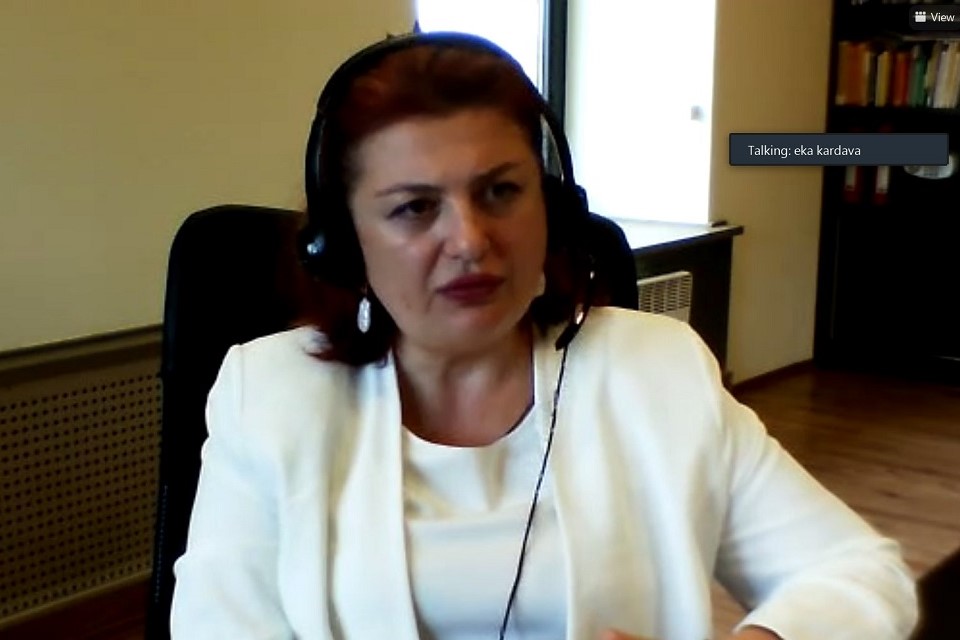Sexual harassment is a widespread problem in the Georgian civil service
Date:

In Georgia, 34 per cent of civil servants have experienced sexual harassment while working in the civil service. The most common victims of sexual harassment are young women under the age of 35. Moreover, 93 per cent of female civil servants consider sexual harassment to be a serious social problem, while only 44 per cent of men think the same.
A study report, conducted by CRRC-Georgia in cooperation with the Civil Service Bureau and UN Women, was presented by the authors to representatives from the legislative and executive government as well as international and non-governmental organizations. It is noteworthy that this is the first specialized study on the prevalence of sexual harassment in the workplace within the civil service and that until now, data about this problem did not exist.
“The study allows us to plan the right steps for the prevention of sexual harassment,” said Catherine Kardava, Director of the Civil Service Bureau. “The recommendations and findings of the document will become a guidance for the Inter-Agency Commission on Gender Equality, Violence against Women and Domestic Violence on the basis of which it will be possible to carry out various tasks and activities.”
The study also reflects the attitudes of public officials towards the problem’s response and reporting mechanism. Specifically, 94 per cent of respondents say that they have the right to report sexual harassment in the workplace, while 80 per cent believe that notification is an effective way to stop violence. Most of the respondents prefer to be able to report incidents of sexual harassment to the appropriate person within their agency.
“Positive steps have been taken in Georgia in terms of regulating sexual harassment on the legislative level, but in practice there are still some problems,” remarked Niko Tatulashvili, the Prime Minister’s Advisor on Human Rights. “We will definitely be involved in the implementation of the presented recommendations, and we will do our best to make the existing progress in legislation tangible in practice.”
It is noteworthy that UN Women works closely with the Civil Service Bureau to prevent and eliminate sexual harassment in the civil service. As part of this collaboration, in 2020 and 2021, eight public sector organizations developed and adopted an internal mechanism for sexual harassment complaints. The important information obtained from the study will play a valuable role in determining the next steps.
The study was conducted according to international methodology during the period from December 2020 to February 2021 and integrated both quantitative and qualitative research. The study was conducted within the framework of the project “Good Governance for Gender Equality in Georgia”, which is implemented with the support of the Government of Norway.